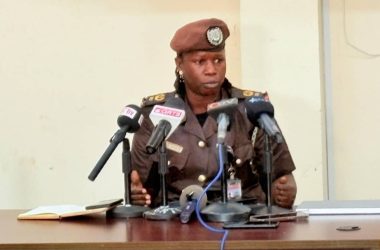As expulsion of Unicef Rep. features at UN
By Kemo Cham
Self-censorship continues to be the order of the day in the Gambian media, with almost one week now since the expulsion of Min-Whee Kang, UNICEF representative to the country.
According to reliable information from Gambia, it wasn’t until yesterday, February 17, 2010, six days after the unceremonious departure of the Unicef boss from the country, that Foroyaa newspaper came out with an article, discussing it, making it the only media to summon enough courage to do so.
‘‘The rest continue to stay mute, an obvious deliberate decision to observe a law of silence over the Gambia government’s decision to declare person non grata such a very significant personality without any explanation,’’ stated one independent political observer who chose to remain anonymous.
At its daily briefing, at noon of Wednesday February 16, the expulsion of Ms Kang as Unicef boss from Gambia surfaced at the United Nations.
Secretary General Ban Ki-Moon’s deputy spokesperson said, ‘‘I looked at the press reports and I checked with UNICEF, as that is the agency that was named in the reports. UNICEF does confirm that their representative has been expelled but that they have no further details on that. So we will have to wait for more information from them.’’
As the world’s body awaits explanation for the unceremonious removal of its envoy from Gambia, in the country of focus, after confirming the information with the UNDP country headquarters, the Foroyaa reporter decided then to get in touch with the government authorities.
“Foroyaa contacted the Ministry for Foreign Affairs for explanation but was informed that the Permanent Secretary was at a meeting at the State House and would not be accessible until the following day,” the paper stated in its Wednesday February 17th edition.
The law of silence being perpetuated in the country explains what is presently being discussed about the need for a free press.
However, the level of coverage the issue attracted online, as that has become the only possible way of dealing with Gambian issues these days, has been overwhelming.
It remains to be seen though if and when will the Gambia government come up with any explanation, or still if such an explanation will be enough to explain such a significant decision.
Trending :
- 3 days ago
- Barrow Pledges Three-Level Highway To Ease Traffic In Greater Banjul
- 4 days ago
- New GGC Groundnut Trade Regime Engenders Misery For Farmers
- 1 week ago
- Should Halifa Be Held Responsible For 2016 Coalition’s Rupture?
- 1 week ago
- High Court To Rule In Bitcoin Tower Case Next Month
- 1 week ago
- Gambia’s Tourism Minister Wins World Best Minister Award In Dubai




